Step 1. Identification of victims of trafficking
Identification usually takes place during the first contact with a person (for example, during police raids, field work, when the person calls a helpline, etc.) and when the person is referred by another organisation. It is carried out based on:
- Initial informal conversation with the trafficked person;
- Observations of the person’s behaviour and appearance;
- Information provided by the referring person or a citizen;
- Observation and analysis of the circumstances in which the person was found;
- Self-identification of the trafficked person;
- Others.
Identification can be supported through the Indicators for the identification of trafficked persons.
Specialists who are in contact with a victim can carry out INFORMAL IDENTIFICATION and decide if there are sufficient grounds to believe that a person is a victim of trafficking. Informal identification is sufficient to ensure immediate and unconditional access for the victim to the support services and programmes set out in the NRM. It can be performed by different professional such as staff of institutions, organisations, consultants via phone lines, volunteers under programmes and/or people engaged as field workers, etc. A victim’s self-identification is also informal identification.
It may transpire later that the person is a victim.
FORMAL IDENTIFICATION is performed by pre-trial authorities and aims to launch an investigation. The formal identification of victims of trafficking is usually part of proceedings or a procedure where pursuant to the regulatory framework the recognition of a person as a “victim of trafficking” is carried out by competent and authorised bodies.
The conversation to determine if a person is a victim of trafficking is called an interview.
An interview aims to clarify if the crime of trafficking in human beings has been committed and if a person is a victim of trafficking. The interview features questions related to the main indicators of trafficking such as fraud, violence, exploitation, and to revealing specific facts (who, when, how, etc.). The interview is held with the victim’s consent in the course of a police check. The information collected is not evidence and may not be used in pre-trial proceedings. After an interview with a police officer, victims are referred to a crisis centre.
An interrogation or testifying, on the other hand, aims to gather information to help the investigation and criminal prosecution of the perpetrators. An interrogation entails specific questions to identify the perpetrators, the place and instrumentalities of crime. It cannot take place before expiry of the recovery and reflection period unless the victim has stated expressly that they wish to cooperate in detecting the crime. The record of the interrogation constitutes evidentiary material. An interrogation can take place before expiry of the reflection period only with the victim’s consent (see Measure 2.2).
Step 2. Establishing a victim’s identity
If the victim’s identity is not known, it is established by the MoI authorities.
Police authorities can verify a person’s identity on their own initiative – when investigating crimes or during checks of the authenticity of identity/residence documents or at the request of another state body.
Identity is verified by requesting that the person provide a valid identity document, through testimonies of other people whose identity is known and who know the person, or through other means of collecting reliable data.
If the identifying organisation has no such mandate (for example, if it is an NGO), it contacts the respective authorities as soon as possible. The data from information databanks for Bulgarian identity documents are provided to legal entities based on existing legislation or through a court order.
Step 3. Informing trafficked persons about their rights as victims of trafficking
- The competent persons who identified the victim;
- Pre-trial authorities;
- Counsellors and employees of shelters, crisis centres and counselling programmes as well as other service providers to which the trafficked person was referred after the identification
